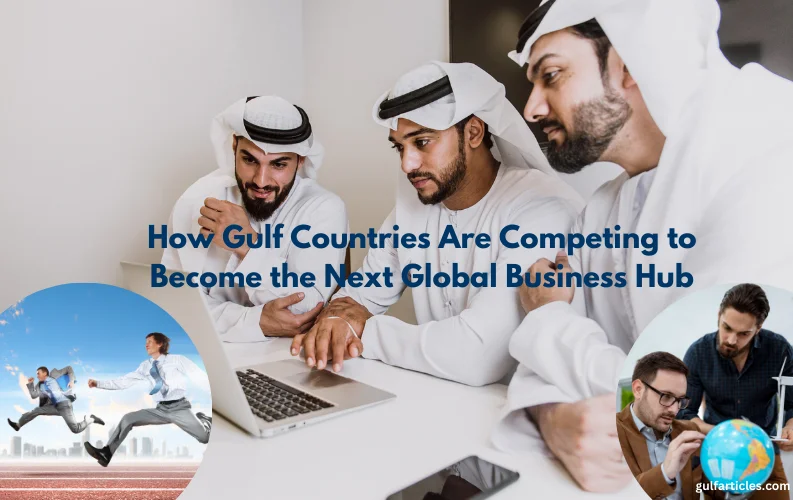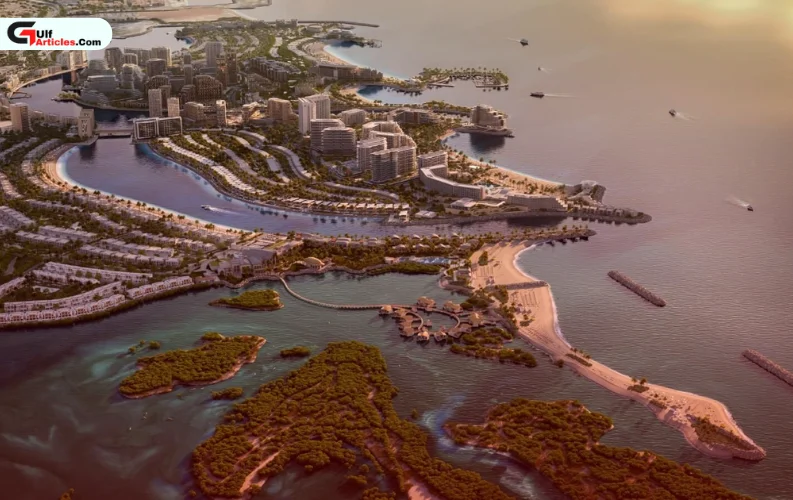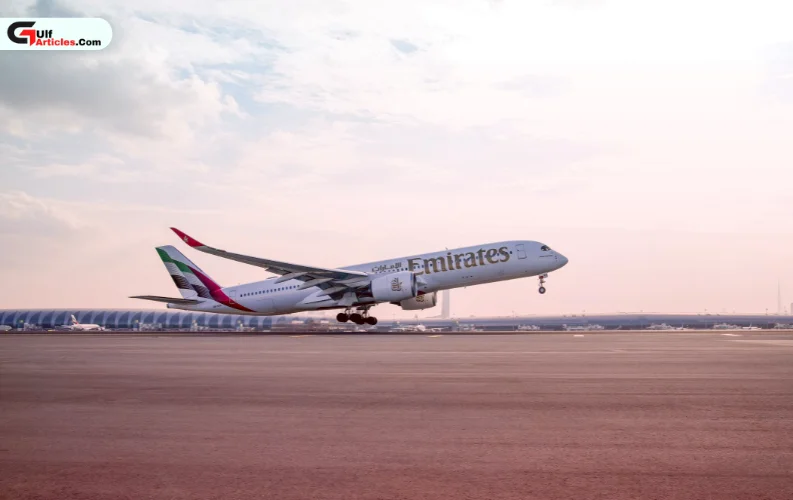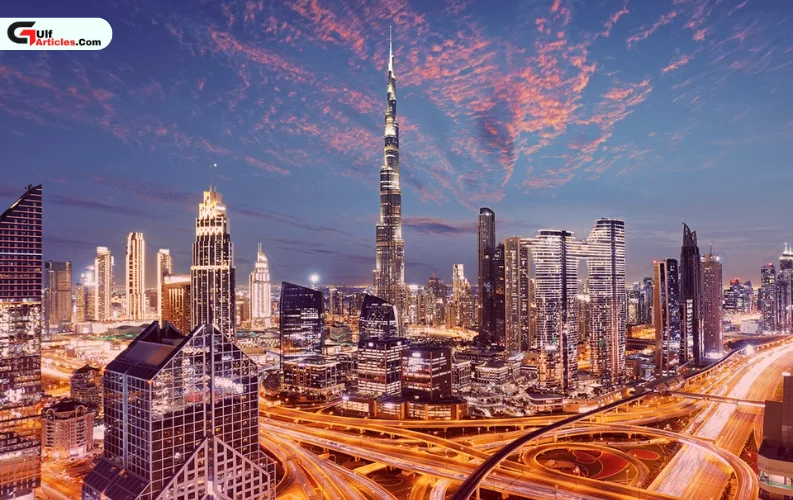The Gulf region is undergoing a massive economic transformation, with countries like United Arab Emirates (UAE), Saudi Arabia, Qatar, Bahrain, Oman, and Kuwait vying to establish themselves as the next global business hub. With economic diversification, pro-business reforms, foreign investment incentives, and cutting-edge infrastructure, the Gulf is attracting multinational corporations, entrepreneurs, and investors from around the world.
This article explores how Gulf nations are competing to become the premier destination for business and innovation, key initiatives they are implementing, and what sets them apart in the global market.
Why Gulf Countries Are Competing to Be a Global Business Hub
Several factors have contributed to the Gulf’s ambition to position itself as a major business destination:
-
Economic Diversification Efforts – Countries are moving away from oil dependency and expanding into technology, tourism, finance, and renewable energy.
-
Foreign Direct Investment (FDI) Policies – Governments are creating tax-friendly environments and easing foreign ownership restrictions.
-
Infrastructure and Smart Cities – Massive investments in world-class airports, ports, free zones, and smart cities support global businesses.
-
Strategic Location – Positioned between Asia, Europe, and Africa, the Gulf serves as a central trade and investment hub.
-
Government-Backed Innovation & Entrepreneurship Programs – Startup ecosystems are thriving with funding, incubators, and accelerator programs.
With these factors in play, Gulf nations are making aggressive economic and policy reforms to stay ahead in the competition.
Key Strategies Gulf Nations Are Using to Become Global Business Leaders
1. Business-Friendly Policies and Economic Reforms
Gulf governments have introduced pro-business laws to attract global investors. Some of the major reforms include:
-
100% Foreign Ownership – UAE, Saudi Arabia, and Qatar allow full foreign ownership in key sectors.
-
Tax-Free Business Zones – Dubai International Financial Centre (DIFC), Abu Dhabi Global Market (ADGM), and Bahrain’s Free Trade Zones offer corporate tax exemptions and relaxed regulations.
-
Easier Business Licensing & Registration – Governments are streamlining bureaucratic procedures, reducing setup times for companies.
-
Visa and Residency Reforms – Programs like the UAE’s Golden Visa and Saudi Arabia’s Special Privileged Residency allow long-term stay for investors and entrepreneurs.
2. Mega Infrastructure and Smart Cities
Gulf countries are investing billions in infrastructure projects to create high-tech, globally connected business environments. Major projects include:
-
NEOM (Saudi Arabia) – A $500 billion futuristic city focusing on AI, robotics, and sustainability.
-
The Line (Saudi Arabia) – A zero-carbon smart city designed for businesses and digital innovation.
-
Masdar City (UAE) – A sustainable smart city dedicated to clean energy and research.
-
Lusail City (Qatar) – A cutting-edge urban development supporting financial and corporate sectors.
-
Kuwait Silk City – A massive project aimed at enhancing trade and logistics.
These mega-projects are positioning the Gulf as a high-tech, sustainable business powerhouse.
Industry Focus: Key Sectors Driving Gulf Competitiveness
1. Technology and Artificial Intelligence (AI)
The Gulf is heavily investing in AI-driven economies, making it a leader in digital transformation. Key initiatives include:
-
UAE’s AI Strategy 2031 – Aims to integrate AI across government and business sectors.
-
Saudi Arabia’s Vision 2030 AI Development – Focuses on AI research, smart governance, and automation.
-
Qatar’s National AI Strategy – Supports AI-driven finance, logistics, and urban planning.
2. Financial Services and Fintech Growth
The Gulf is a growing financial hub, with several nations leading in fintech and banking innovation:
-
Dubai International Financial Centre (DIFC) – A global finance hub supporting fintech startups.
-
Abu Dhabi Global Market (ADGM) – A financial zone with blockchain-friendly regulations.
-
Fintech Saudi Initiative – Saudi Arabia’s push for digital banking and payments.
-
Bahrain Fintech Bay – A regional leader in fintech acceleration and blockchain development.
3. Tourism, Hospitality, and Entertainment
Tourism is a major part of economic diversification, with Gulf countries developing world-class attractions and cultural experiences:
-
Dubai Expo 2020 Legacy – Transforming Dubai into a global tourism and business hub.
-
Saudi Arabia’s Red Sea Project and AlUla Heritage Site – Enhancing luxury and adventure tourism.
-
Qatar’s FIFA World Cup 2022 Infrastructure – Driving sports and hospitality growth.
-
Oman’s Vision 2040 Tourism Development – Expanding eco-tourism and cultural tourism sectors.
4. Renewable Energy and Sustainability
With a strong push for sustainability, Gulf nations are leading in clean energy and green initiatives:
-
UAE’s Mohammed bin Rashid Al Maktoum Solar Park – One of the world’s largest solar projects.
-
Saudi Green Initiative – Plans to plant 10 billion trees and reduce carbon emissions.
-
Bahrain’s Net-Zero Strategy – Aiming for carbon neutrality by 2060.
-
Oman’s Wind and Solar Power Expansion – Strengthening renewable energy production.
Competition Among Gulf Nations: Who is Leading?
Each Gulf nation has its own strategy to become a global business hub:
-
UAE – Focused on fintech, AI, tourism, and high-tech business zones.
-
Saudi Arabia – Investing in smart cities, AI, and renewable energy to drive Vision 2030.
-
Qatar – Leading in AI, finance, and sustainable urban development.
-
Bahrain – Emerging as a fintech and startup-friendly business hub.
-
Oman & Kuwait – Strengthening trade, logistics, and clean energy sectors.
While Dubai, Riyadh, and Doha are leading in business competitiveness, the overall Gulf region is benefiting from cross-border investments and economic cooperation.
The Future: What’s Next for the Gulf’s Business Landscape?
The Gulf’s push to become a global business hub is expected to accelerate. Key trends shaping the future include:
-
Expansion of AI & Blockchain Technologies
-
Increased Foreign Investment & Startups
-
Greater Focus on Women Entrepreneurs & Leadership Roles
-
Cross-Border Trade Agreements & Global Business Partnerships
-
Sustainable Business Practices & Green Tech Investments
The Gulf’s transformation into a business powerhouse is driven by visionary leadership, economic reforms, and cutting-edge technology, making it a region to watch in the global business landscape.
Conclusion
The Gulf is no longer just an oil-rich region; it is evolving into a global economic powerhouse. With its pro-business environment, massive infrastructure projects, and strategic industry investments, Gulf nations are shaping the future of international business.
Entrepreneurs, investors, and corporations looking for high-growth opportunities will find the Gulf to be an ideal business destination in the coming decades.
You may also like:-






















